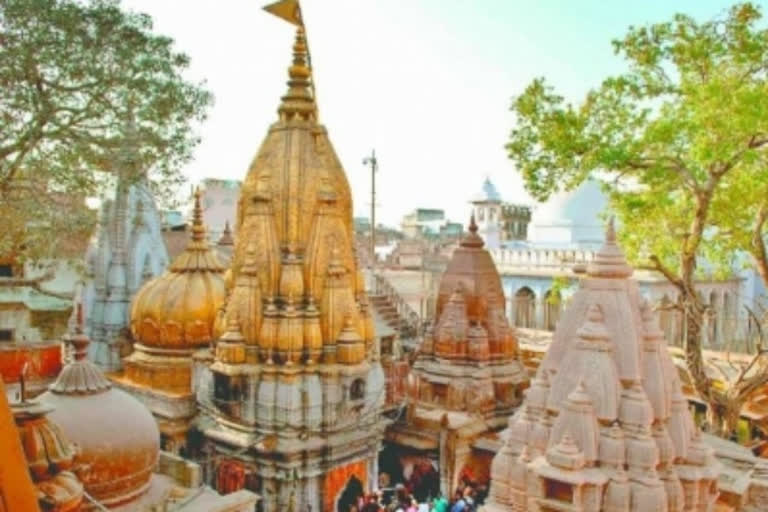Varanasi (Uttar Pradesh): On Thursday, the Varanasi Civil Court, while hearing the Kashi Vishwanath-Gyanvapi dispute case, has accepted the application of the Archaeological Survey of India in the long-pending case and has entrusted the responsibility of this entire matter to the Central government, which has been directed to form a team of five people at its own expenses in the case. The orders have been issued for conducting an archaeological survey. In the committee, two people from the Muslim side will also be included.
Today's development is seen as a major breakthrough in the year-long controversy involving Hindus and Muslims over the Kashi Vishwanath-Gyanvapi case. The decision to conduct an archaeological survey at the Gyanvapi mosque has been made by Ashutosh Tiwari, a Civil Judge of the Senior Division Fast Track Court. The government will bear the full expenses for the study of the entire mosque premises by forming a team of five scholars from the archaeology department, the court added.
Also read:IAS officer's tryst with acting
Speaking on the issue, Vijay Shankar Rastogi the lawyer representing the Hindu side said that in 1669 the temple was demolished and the disputed structure was erected, adding that all other remains are present at the site. He also went onto say that under the structure, at around 100 feet a Shivling is present.
It is in this context that the court has ordered the archaeological department to survey. The Government of Uttar Pradesh and the Archaeological Survey of India have been asked to submit a survey and report on their expenses.
Also read:Mukhtar Ansari to be produced through video conferencing in Mau's CJM court today
Earlier, in December 2019, advocate Vijay Shankar Rastogi had filed an application on behalf of Swayambhu Jyotirlinga Bhagwan Vishweshwar in the court of civil judge, requesting a survey of the entire Gyanvapi compound by the Archaeological Survey of India (ASI). He had filed the petition as the 'next friend' of Swayambhu Jyotirlinga Bhagwan Vishweshwar.
Later, in January 2020, Anjuman Intezamia Masjid Committee had filed an objection against the petition, also seeking a survey of the entire Gyanvapi compound by the ASI.
Also read:Night curfew in Uttar Pradesh cities of Lucknow, Varanasi, Kanpur
The first petition was filed in the Varanasi civil court in 1991 on behalf of Swayambhu Jyotirlinga Bhagwan Vishweshwar seeking permission for worship in Gyanvapi. The petitioner had contended that the Kashi Vishwanath temple was built by Maharaja Vikramaditya about 2,050 years ago, but Mughal emperor Aurangzeb had destroyed the temple in 1664 and used its remains to construct a mosque, which is known as Gyanvapi masjid, which is located on a portion of the temple land.
The petitioner had requested the court to issue directions for the removal of the mosque from the temple land and give back its possession to the temple trust.
Also read:UP BJP MLA creates ruckus at DM office, video goes viral
The petition contended that the Places of Worship (Special Provisions) Act was not applicable on the suit as the mosque was constructed over a partly demolished temple and many parts of the temple exist even today.
In 1998, Anjuman Intezamia Masjid Committee moved the high court contending that the mandir-masjid dispute could not be adjudicated by a civil court as it was barred by the law. The high court stayed the proceedings in the lower court which had continued for the past 22 years. In February 2020, the petitioners approached the lower court again with a plea to resume the hearing as the high court had not extended the stay in the past six months.
(With inputs from agencies)
